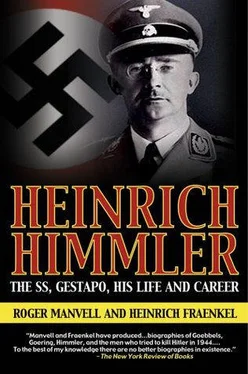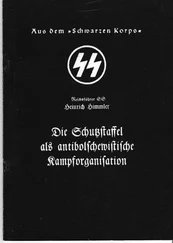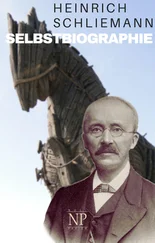Himmler had had no illusions about Mussolini; he had been kept well informed of the situation by his agents in Rome, and Skorzeny records how much Himmler seemed to know of the position. However, once Mussolini was under arrest, the reports of his agents no longer sufficed. Himmler is said by both Schellenberg and Höttl to have consulted a group of astrologers in an effort to divine where Mussolini was hidden. They were confined, says Schellenberg, in a country house by the Wannsee and there, after the seers had consumed great quantities of food, drink and tobacco, one of their number, a Master of the Sidereal Pendulum, located Mussolini on an island west of Naples. Since Mussolini had actually been taken for a while to Ponza, this no doubt more than justified in Himmler’s eyes the expenditure of S.S. time and money on the occult.
With Heydrich dead, Himmler was left to carry the full burden of his policies alone. He exercised, like Hitler himself, the leadership principle in the control of a situation of such growing complexity that, even in a dictator-state, consultation between the ministries and the co-ordination of policy with the High Command responsible for the conduct of the war would seem essential if Germany were to resolve the problems which Hitler’s ambitions had brought about.
But in the place of consultation and co-ordination, Hitler chose to govern by personal decisions which were less and less affected by the advice he received. With Goring in decline and Goebbels still chafing to extend his growing influence outside the restricted field of propaganda, Hitler was surrounded by nonentities whose place in his favour still depended on their ability to support him in his fantasies of war. His strength was still great and he had not lost his cunning, but he was already in these mid-years of the war using at their limit his vast quantities of men and equipment. He weakened his fighting forces by extending them on a front that stretched two thousand miles in a curve from north to south, leaving the heart of Germany exposed to the Allied bombers from the west, which the Luftwaffe could no longer successfully oppose. For Hitler, his ultimate failure was always inconceivable, and his instinctive response to all reverses was to turn his attention from them and withdraw into the delusions of his mind. Himmler was present with both Goring and Goebbels when, at a conference held in December 1941, Hitler proclaimed himself his own Commander-in-Chief in order that he might more readily override the Army High Command. From 1942, he shut himself away from the German people and from the parading soldiers, whose saluting and massive cheers had once fed his pride and purpose. Now he saw himself as the solitary genius waging war from a succession of headquarters that lay remote from the battlefronts, first of all at Vinnitza in the Ukraine, then either at Rastenburg in East Prussia, at Zossen near Berlin itself, or in the retirement of Berchtesgaden, where the mountains reflected the peace and perfection that he craved.
Below him in the Nazi hierarchy lived Himmler, a lesser spirit but one created in the image of the man he worshipped. In place of Hitler’s perverted genius, he could only offer his insatiable obsessions and his pedantic attention to detail; in place of Hitler’s mesmeric leadership, his absolute devotion to his duty and his rigid insistence on a similar dedication in his subordinates. His power was based on fear; yet fear was the experience he endured himself, and it grew directly out of his dependence on others and his personal inadequacy. His nervous condition had become chronic, and only Kersten could relieve him from these disabling bouts of pain. His anxiety to destroy the Jews and Slavs and place himself at the head of a Nordic Europe brash with health was a compensation for the weakly body, the sloping shoulders, the poor sight and the knockknees to which he was tied. His mistress and her children had renewed his sexual confidence, but sexual prowess was not his strongest point. He wore the élite black uniform of the S.S. or the field-grey of his fighting forces, but his private army, even in 1942, was still kept in severe check by Hitler, and his schemes for independent arms production in the camps were equally frustrated.
Hitler’s reserve on recruitment for the S.S. was not to be removed till March 1943; the armoured train and the remote headquarters in Zhitomir, to which Himmler travelled so often during the years 1941—3, were a centre for directing persecution behind the lines and not for the exercise of military powers. 17
Zhitomir, in the Ukraine, some 700 miles south-east from Berlin, was situated about sixty miles north of Hitler’s headquarters at Vinnitsa. An officers’ training college, set in beautiful surroundings, had been requisitioned for the Reichsführer and his staff. It was equipped, according to Schellenberg who was a frequent visitor and appreciated elaborate installations, with short-wave and telephone communications linking him to every part of German-occupied Europe. There was even a tennis court on which Himmler attempted now and then to keep himself fit. During the period Hitler was in Vinnitza, from July to October 1942, Himmler made a point of seeing him on every occasion possible, driving south in his armoured car along the Rollbahn connecting the two centres.
Meanwhile Himmler attempted to keep the S.S. in sound moral order. Reproving letters poured out from his headquarters: ‘I note your daughter is working in your office. You should have asked me first’; ‘you had better look at the Germanization files giving you evidence of intercourse between German women and incriminated Poles and other aliens’; ‘I do not want you to travel round as much as you do, showing off as a great commander’; ‘the Reichsführer S.S. considers it inexcusable for S.S. leaders in the fourth year of the war to get drunk’; ‘Dietrich told me today that the Leibstandarte during its stay in France had 200 cases of gonorrhea. The men really cannot be blamed. The unit came from the Eastern front and must have been completely starved sexually… All units of the Waffen S.S. are to be provided with brothels for whose flawless medical control the unit is responsible.’ At the same time unit leaders must see that the seventeen and eighteen-year-olds ‘do not waste their health and strength on harlots’, and arrange for ‘meetings between married S.S. men and their wives, since otherwise we cannot expect these marriages to produce the required and desirable number of children’. A list of suitable hotels and inns near training camps was to be drawn up, and the expenses of visiting wives met from S.S. funds. In addition lectures on the healthy procreation of children were to be given to the men.
Himmler’s thought and strategy during the middle years of the war must be understood in the light of the document he showed to Kersten at his field headquarters in December 1942, the twenty-sixpage report on Hitler’s state of health. He took the report, contained in a black portfolio, from a safe and gave it to Kersten under terms of the utmost secrecy. The report went into Hitler’s medical history, how he had suffered from the effects of poison gas in the First World War and had been for a while in danger of blindness, and how he had certain symptoms associated with the syphilis he had contracted in his youth and which had never been cured. After lying dormant, these symptoms had re-appeared in 1937 and again at the beginning of 1942; they included insomnia, dizziness and severe headaches, and revealed that Hitler was suffering from progressive paralysis which must sooner or later affect his mind. The only treatment he was receiving was that devised by his full-time physician, Professor Theodor Morell, a former ship’s doctor who had run a somewhat shady clinic for venereal diseases in Berlin until he had been discovered by Hitler’s photographer, Heinrich Hoffmann, and introduced to the Führer. Hitler, as unorthodox in his attitude to medical treatment as Himmler, had taken Morell into his intimate circle in 1936, and given up his body to him for endless experiments in drugs and injections, many of which Morell patented and manufactured for his personal profit.
Читать дальше











